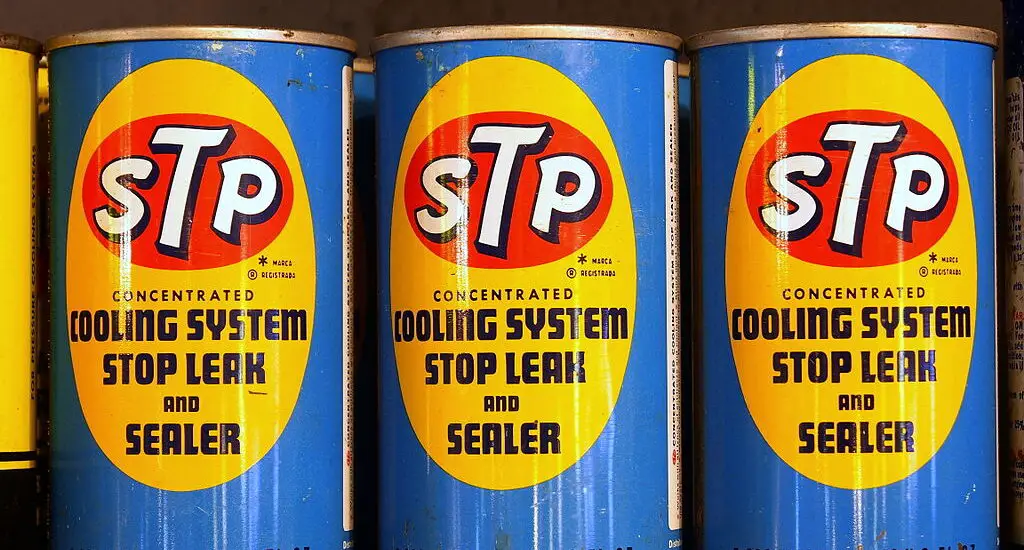If you’re asking, “does refrigerant stop leak work?” you’re not alone. Many people with HVAC systems have this same question. Here’s the quick answer: sometimes it does, sometimes it doesn’t. Stick around, and you’ll learn all there is to know about this controversial product.

Table of Contents
Brief Overview of Refrigerant Stop Leak
Before we delve deeper, let’s quickly recap what we’re talking about. A refrigerant stop leak is a product designed to seal minor leaks in your HVAC system’s refrigerant line. Picture a Band-Aid for your AC unit – but don’t get too excited just yet.
Quick Summary of Refrigerant Stop Leak Effectiveness
Here’s the gist: a refrigerant stop leak can provide a temporary fix for minor leaks. But it’s not a magic potion – it won’t fix large leaks or issues stemming from system damage. Remember, it’s a temporary solution, not a permanent fix.
Understanding Refrigerant Stop Leaks
Delving into the essence of refrigerant stop leaks, we’ll shine a light on what they are and the basic mechanics of how they function. We will unpack their design purpose and how they interact with the elements of your HVAC system.
What is a Refrigerant Stop Leak?
Think of a refrigerant stop leak as a special elixir. When you add it to your HVAC system, it travels with the refrigerant. When it finds a leak, it forms a seal to block it. But bear in mind, it’s only designed to handle minor leaks. It’s not the HVAC equivalent of duct tape, so don’t expect miracles.
How Does a Refrigerant Stop Leak Work?
Curious about the science behind it? It’s simpler than you might think. Refrigerant stop leak relies on the pressure difference between the inside of the system and the outside environment. When it reaches a leak, the change in pressure forces the stop leak material to solidify and seal the leak. Kinda cool, right?
Assessing the Effectiveness of Refrigerant Stop Leak
We’ll navigate through the controversial effectiveness of refrigerant stop leaks. Drawing on both research and professional insight, we’ll dissect their performance over the short and long term. In addition, we’ll explore the various factors that can influence their effectiveness.
Does Refrigerant Stop Leak Work?
The million-dollar question: does it work? According to various studies, the answer is a bit of a mixed bag. For some minor leaks, refrigerant stop leak can be a handy fix. But for larger leaks or system damage, not so much. In fact, the Air Conditioning, Heating, and Refrigeration Institute caution against its use as a permanent fix.
Short-term Effectiveness of Refrigerant Stop Leak
In the short term, refrigerant stop leak can be quite effective. It can quickly seal minor leaks and get your system back up and running. But remember, it’s like applying a bandage – it’s not going to fix the root cause of the problem.
Long-term Effectiveness of Refrigerant Stop Leak
Looking at the bigger picture, the effectiveness of refrigerant stop leak is questionable. Over time, the stop leak material can degrade or the leak might enlarge, causing the problem to recur. Plus, there’s a risk of damage to the system components if overused.
Factors Influencing the Effectiveness of Refrigerant Stop Leak
Several factors influence how well refrigerant stop leak works. The size of the leak is a big one. Bigger leaks are simply beyond the capabilities of stop leak. The type of refrigerant and system conditions also play a role. There’s no one-size-fits-all answer here, folks.
Check out these other related articles…
Water Refrigerant: A Comprehensive Guide
CO2 Refrigerant: Your Ultimate Guide
Refrigerant HFC 134a: A Detailed Exploration
5 Overcharged Refrigerant Symptoms: A Detailed Guide
How to Fix an Overcharged Refrigeration System: 3 Easy Steps
Potential Consequences of Using Refrigerant Stop Leak
Time to explore the potentially dark side of using refrigerant stop leak. It’s crucial to be aware of the risks and potential damage your system might face. From system breakdowns to complications in future repairs, we’ll discuss the potential downsides.
Risks and Drawbacks of Using Refrigerant Stop Leak
So, what’s the catch? For starters, using refrigerant stop leak can lead to damage to your system, particularly if overused. In worst-case scenarios, it could even lead to a system breakdown. It’s like using too much glue – it gets messy and causes more harm than good.
Implications for System Maintenance and Repair
Here’s another catch: using refrigerant stop leak could make future repairs more challenging. The stop leak material might interfere with system components or make it harder for professionals to find and fix leaks. It’s a bit like a detective trying to solve a case with false clues.
Alternatives to Using Refrigerant Stop Leak
Let’s offer you some alternatives if you decide that refrigerant stop leak isn’t for you. We’ll look into the benefits of professional repairs and the importance of routine checks and preventative maintenance, all to ensure your system’s longevity.
Professional Repair and Maintenance
Professional repair and maintenance is the best alternative. Sure, it might cost more upfront, but it’ll save you money in the long run. After all, wouldn’t you rather have an expert fix your car than just patch it up yourself?
Leak Detection and Prevention Techniques
Another alternative? Regular inspections and preventive maintenance. This way, you can catch leaks early and prevent bigger issues. It’s like going to the dentist for regular checkups to avoid cavities.